Ignacio Jassa Haro
Operetta Research Center
28 December, 2024
When we speak of the zarzuela discography, the great Spanish opera singers of the second half of the 20th century come to mind, artists such as Alfredo Kraus, Teresa Berganza, José Carreras, Montserrat Caballé and Plácido Domingo. But zarzuela – the quintessential form of popular Spanish-language musical theatre – has had a vital presence in recording studios since the era of wax cylinders and gramophone records. However, since we entered the digital era and coinciding with a global trend of loss of vitality in recordings of classical music, the zarzuela genre has ceased to be captured anew on discs. For this reason, the recent release of two recitals by leading operatic figures from the American continent is news of notable impact.
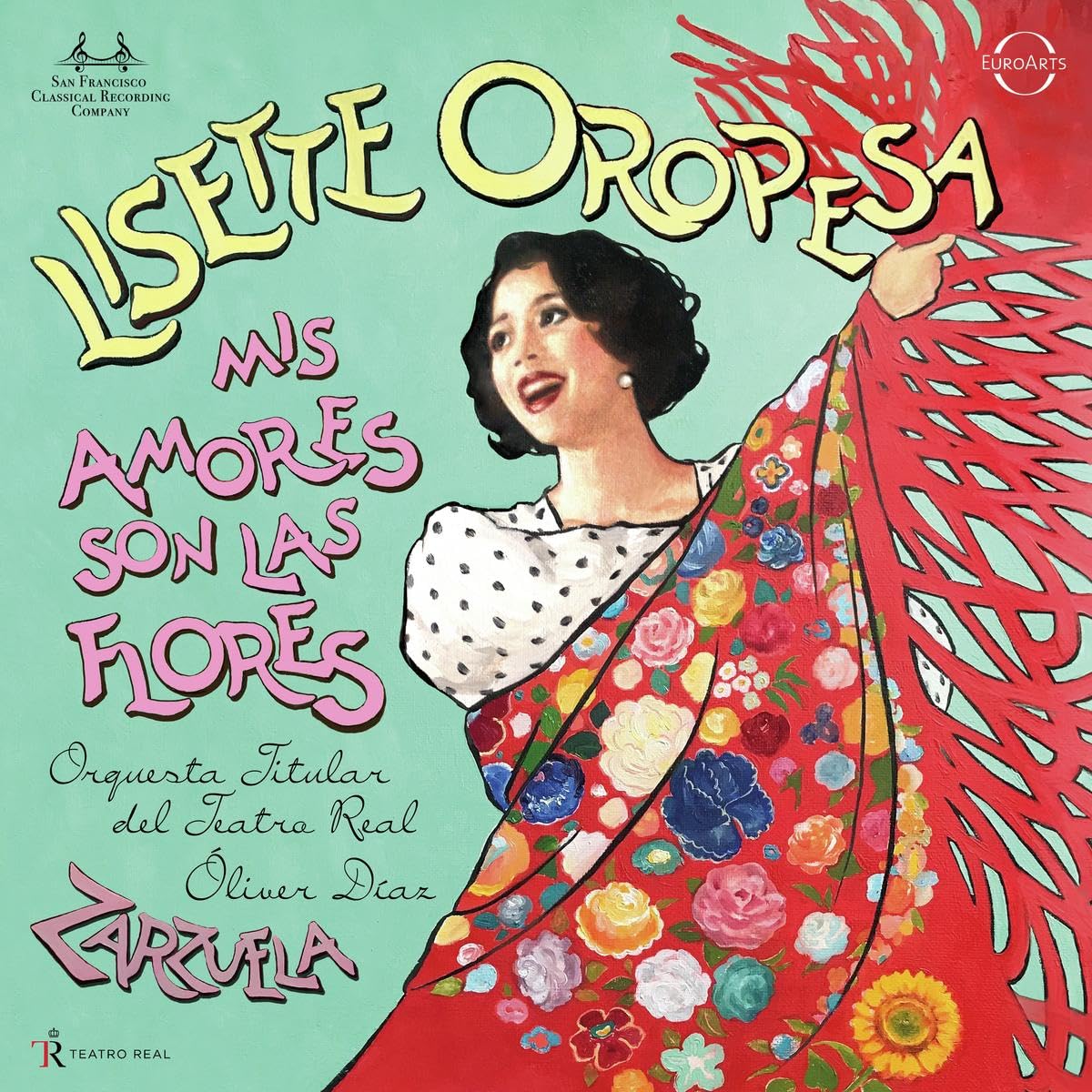
The album “Mis amores son las flores” by Lisette Oropesa. (Photo: San Francisco Classical Recording Company)
The most original of these products features the emerging American soprano of Cuban descent, Lisette Oropesa. The album is entitled Mis amores son las flores (San Francisco Classical Recording Company/EuroArts, 2024) and features the Orquesta Sinfónica de Madrid, the resident orchestra of the Teatro Real de Madrid, and the Coro de la Comunidad de Madrid. The vivid musical direction of Óliver Díaz, an experienced conductor who has been principal conductor at Madrid’s Teatro de la Zarzuela, and a program based on famous Spanish and Cuban composers, combining well-known moments with the rescue of numbers that have never before been digitally recorded, give the disc undeniable interest. Oropesa’s fresh and original interpretation does the rest to make up a very rounded product whose only regret is that it does not exceed 45 minutes in length.
Social Transformation Through Music
The veteran tenor Juan Diego Flórez is the focus of the other phonographic project mentioned above. The initiative arises on this occasion in Flórez’s native Peru and involves Sinfonía por el Perú, an entity with an important project of social transformation through music led by the Peruvian artist.
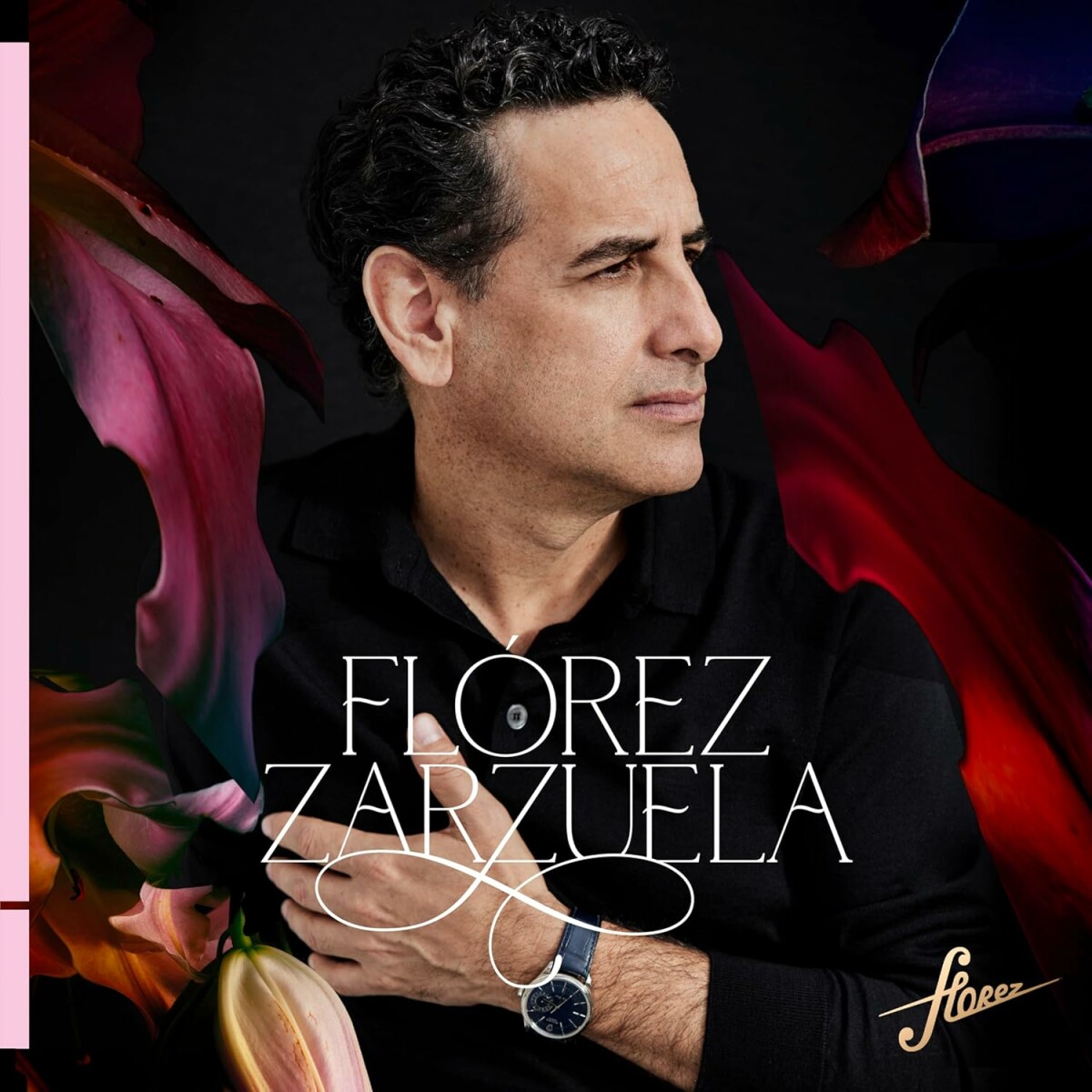
Juan Diego Flórez’s “Zarzuela” album. (Photo: Flórez Records)
The recording involves the Orquesta y Coro Juvenil Sinfonía por el Perú, conducted by another conductor well versed in the lyric repertoire, Guillermo García Calvo, also a former musical director of the Teatro de la Zarzuela. With the predictable title Zarzuela, this disc inaugurates a label promoted by the tenor himself (Flórez Records, 2024). It is also part of a long tradition of zarzuela recitals by operatic tenors whose programme was devised by the iconic Alfredo Kraus, and which have been repeated (almost to exhaustion) by voices such as Jaume Aragall, Josep Carreras, Rolando Villazón, Josep Bros and now Flórez himself. One attraction lies precisely in the comparative exercise between divos, in which Flórez comes off well. His version of the romanza from Ruperto Chapí’s El milagro de la Virgen (1884), sung in tune, is an example of his skill.
Art and Social Change in Spain
The scarcity of phonographic offerings of zarzuela with which we opened these lines seems to be called into question in 2024, as these two recitals are joined by four more from the personal initiative of Fernando Poblete and his Ensamble de Madrid, a piano sextet with a long concert career.
Their collection of zarzuela in chamber format, which included seven volumes released between 2007 and 2013, now adds three new albums (Banco de Sonido, 2024), culminating in an impressive collection of around 50 instrumental selections of zarzuela classics premiered between 1850 and 1936 approximately.
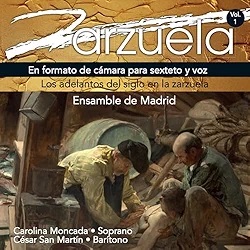
Volume 1 of the series “Zarzuela for sextet and voice” with the Ensamble de Madrid. (Photo: Banco de Sonido)
Performed with remarkable vigour and style by the famous ensemble, these ten albums provide mostly previously unreleased versions in the discography, which in a few cases are also the only sonic testimony of the zarzuelas from which they are taken.
But the Ensamble de Madrid has not only managed to complete its invaluable instrumental recording collection this year, but has simultaneously begun an exciting lyrical project, with a first volume entitled Los adelantos del siglo en la zarzuela [The century’s advances in zarzuela] (Banco de Sonido, 2014). On this album soprano Carolina Moncada and baritone César San Martín, stupendous singers experienced in the recovery of zarzuela gems, have joined the veteran chamber ensemble. The album takes its title from the concert held at the Museo del Prado Auditorium in Madrid last spring as a musical complement to the revelatory exhibition Art and Social Change in Spain (1885-1910), an exhibition that explored how fin-de-siecle artists projected the changes that Spanish society was undergoing as it moved towards modernity.
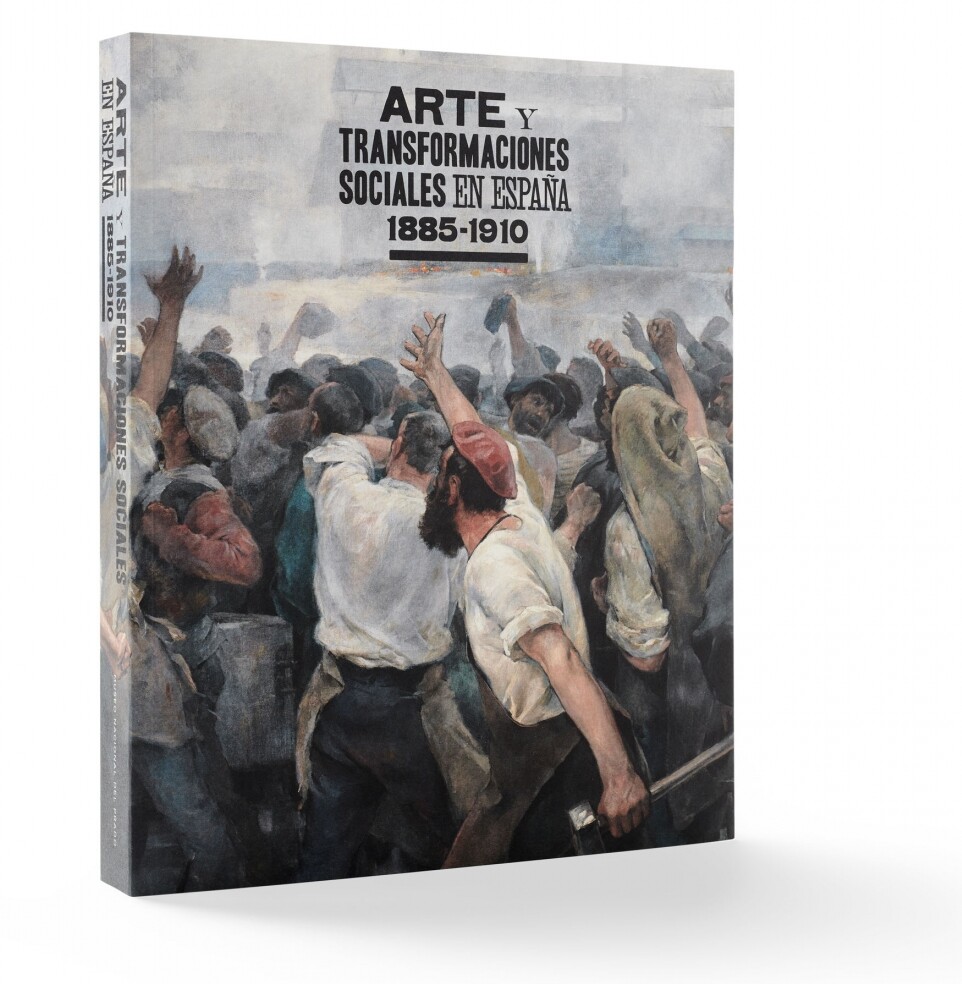
Catalogue to the Prado exhibition “Art and Social Change in Spain (1885-1910)”. (Photo: Museo Nacional del Prado)
Prostitution, Colonial Disaster, and Emigration
The programme of the concert (and of the disc) was curated by our colleague Enrique Mejías García, proposing an eloquent musical correlate to the exhibition: he selected powerful solo and duo numbers as well as instrumental interludes from zarzuelas premiered at the turn of the century, reflecting the same social conflicts analysed in the exhibition (such as prostitution, the colonial disaster, female labour and emigration). The disc is a real first in terms of its format, the rarity of most of the works on it and, above all, its interpretative quality and formal beauty.
World’s First Recording Sung Entirely in Basque
To round off this annus mirabilis of zarzuela on disc we can’t fail to mention the world’s first recording of Jesús Guridi’s zarzuela Mirentxu (IBS Classical, 2024) recently promoted by the now more than century-old Sociedad Coral de Bilbao, the institution that commissioned and premiered the work in 1910.
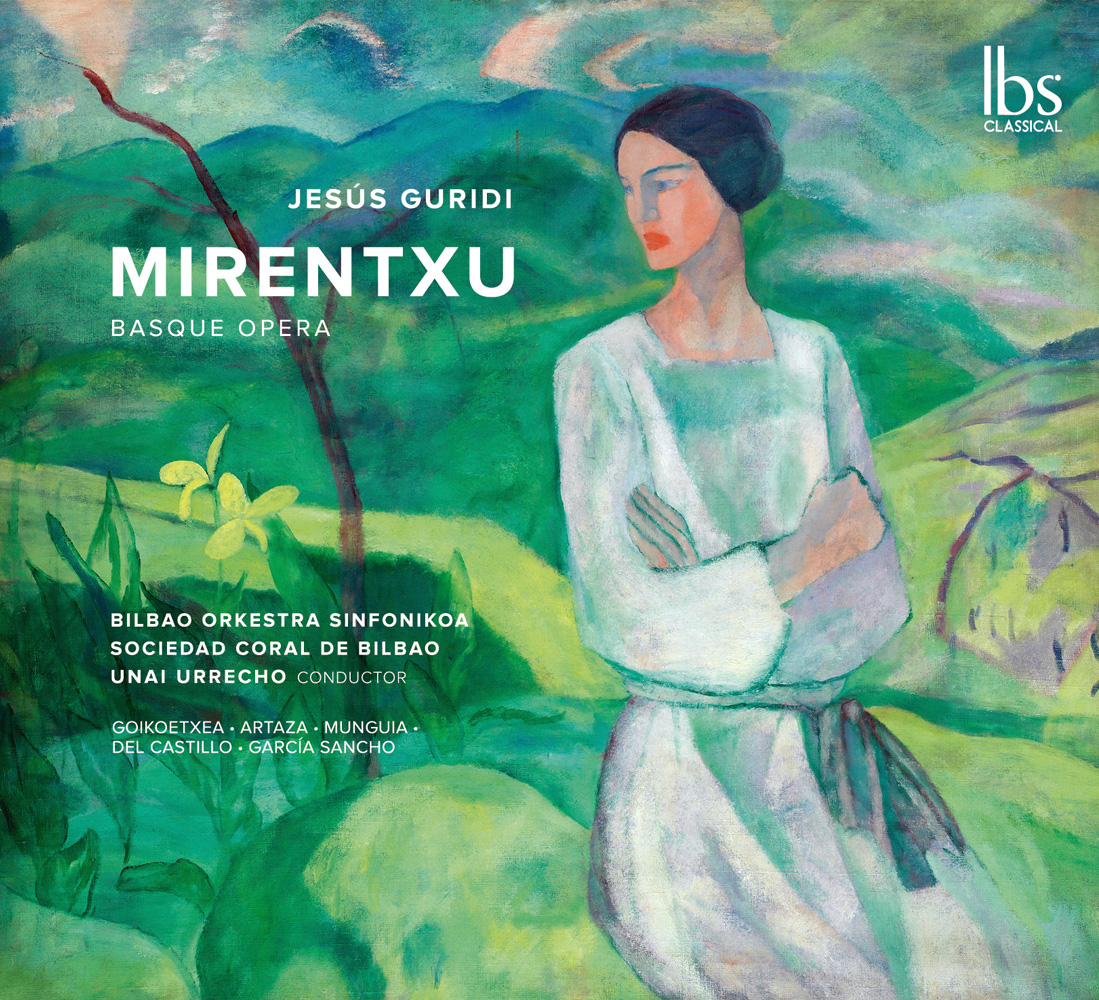
Jesús Guridi’s “Mirentxu”. (Photo: IBS Classical)
This recording features the musical direction of Unai Urrecho and the participation (in addition to the promoting choir itself) of the Bilbao Orkestra Sinfonikoa and a vocal cast led by soprano Vanessa Goikoetxea. The elegant and inspired work with its rural setting and introspective approach was performed with delicate care and sung entirely in Basque (using the composer’s final version, dated 1947).
This year’s exceptionality should not hide, in any case, a poor phonographic reality: since digital technology began to be used at the end of the eighties only thirty zarzuelas have passed through the recording studio. Reasons such as the lack of defined policies, the absence of funding when there is any initiative, or the weight that Spanish opera as a more prestigious genre than zarzuela has had in receiving phonographic attention, if not the absolute disinterest of institutions and promoters, have meant that numerous occasions have been missed (such as stagings or concerts of works rescued from oblivion) when titles of great interest could have been recorded.
Antonio Banderas at the Teatro del Soho Caixabank
It is utopian to think of a dynamism similar to that of the German or French-language operetta traditions, with vigorous phonographic projects behind them. Or what can we say about the distance with the situation of the Anglo-Saxon musical, of which in Spain itself we are enjoying fabulous phonographic projects in progress such as the series of albums of the productions produced by Antonio Banderas at the Teatro del Soho Caixabank in Malaga.
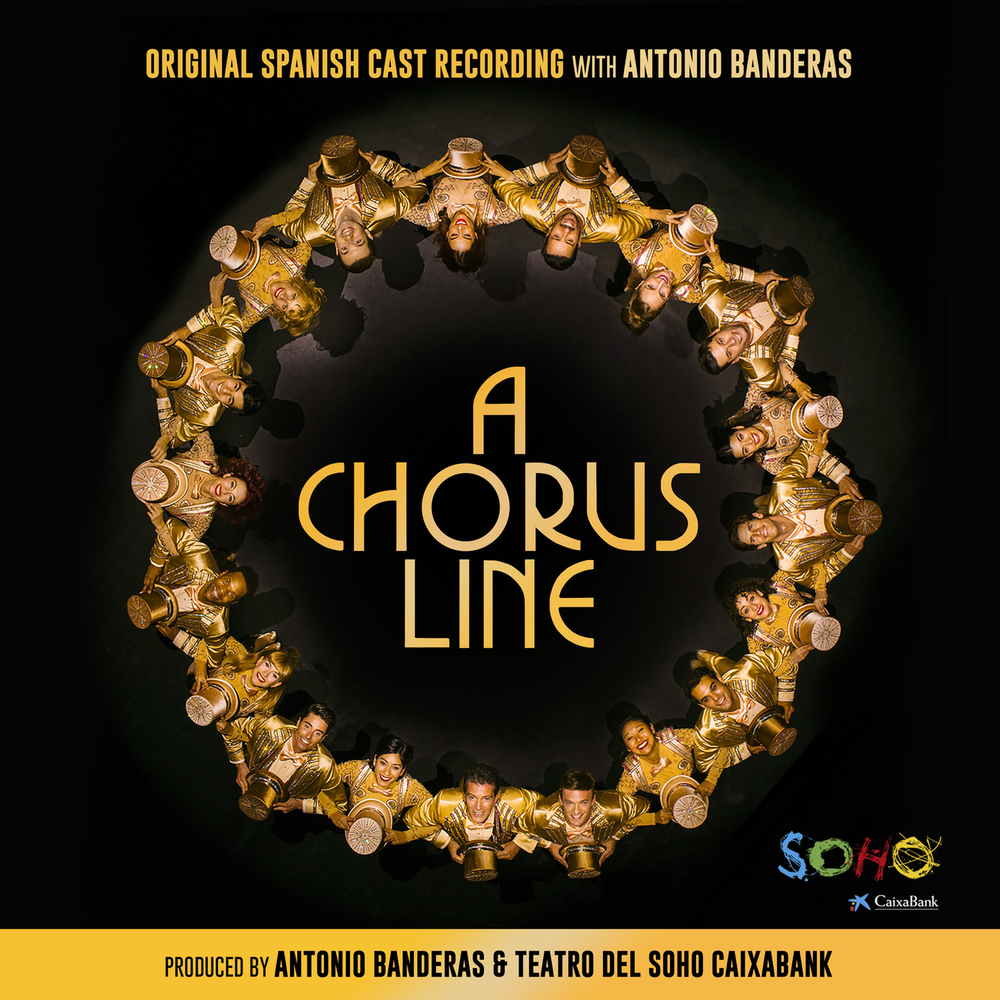
The Spanish cast album of “Company”, 2022. (Photo: Craft Recordings)
For the moment we have three firsts in Spanish such as A Chorus Line (Craft Recordings, 2022), Company (Craft Recordings, 2022) and Godspell (Concord Theatrical Recordings, 2023).
Nevertheless, we are confident that the good times will continue!
